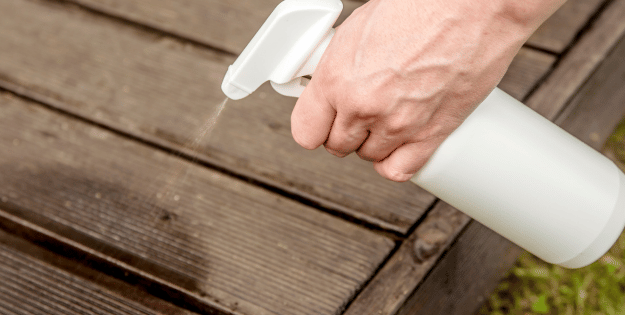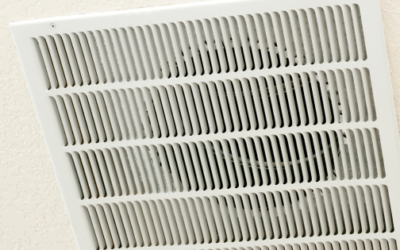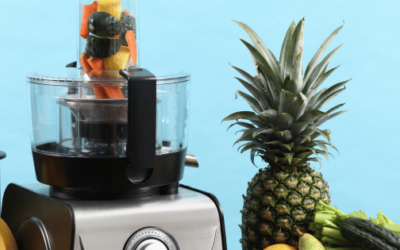Ants can quickly turn a peaceful home into a bustling hive of activity. Their relentless search for food often leads them indoors, causing frustration for homeowners. Finding the right ant repellent is essential for reclaiming your space and ensuring those tiny intruders stay outside where they belong.
With numerous options available on the market, choosing the best ant repellent can be overwhelming. From natural solutions to chemical sprays, each product promises to keep ants at bay. Understanding the effectiveness and safety of these repellents is crucial in making an informed decision. This guide will explore the top ant repellents, helping you find the perfect solution to protect your home from these persistent pests.
Top Amazon Sellers
Key Takeaways
- Understanding Ant Repellents: Ant repellents are vital for preventing infestations, with options ranging from natural remedies to commercial products, each impacting effectiveness and safety differently.
- Natural Solutions: Eco-friendly ant repellents include essential oils, household ingredients like vinegar and lemon juice, and plant-based solutions such as diatomaceous earth and neem oil, which effectively deter ants without harming the environment.
- Commercial Products: These include sprays, baits, and granules that provide targeted and rapid action against ant infestations, though safety should be a priority, especially in homes with children or pets.
- Preventative Measures: Maintaining clean surfaces, proper food storage, and sealing entry points are essential strategies for reducing the risk of ant infestations in your home.
- Safety Considerations: Always check the labels of commercial ant repellents for safety instructions and compatibility with households containing pets or children to ensure a safe environment.
Overview of Ant Repellents
Ant repellents provide essential protection against ant invasions by creating barriers that deter these pests from entering homes. Various types exist, including natural solutions, chemical sprays, and granular formulations. Natural repellents often utilise essential oils or plant-based ingredients, while chemical options typically contain synthetic compounds designed for quicker results. Effectiveness varies based on factors such as ant species, application method, and environmental conditions. Safety is a crucial consideration when selecting the best ant repellents, particularly in homes with pets or children. Understanding the strengths and weaknesses of each type helps in making informed decisions about the appropriate repellent for specific needs.
Natural Remedies
Natural remedies provide effective, eco-friendly options among the best ant repellents. They often rely on common household items or plant extracts to deter ants without harming the environment.
Essential Oils
Essential oils, such as peppermint and tea tree, serve as potent ant repellents. Their strong scents disrupt ant communication, effectively deterring them from infesting areas.
Household Ingredients
Household ingredients like vinegar and lemon juice offer non-toxic solutions for repelling ants. Their acidity disrupts scent trails and acts as a barrier, preventing ants from entering homes.
Plant-Based Solutions
Plant-based solutions, including diatomaceous earth and neem oil, act as natural ant deterrents. They leverage insecticidal properties to target ant populations while remaining safe for humans and pets.
Commercial Ant Repellents
Commercial ant repellents provide effective solutions for controlling ant infestations. These products often contain active ingredients designed to deter ants, making them a popular choice for households.
Types of Commercial Products
Commercial ant repellents typically fall into categories such as sprays, baits, and granules. Sprays offer quick, immediate action, while baits attract ants to ingest toxins, eliminating colonies. Granules create a long-lasting barrier against ant entry, contributing to overall pest management strategies.
Compatibility with Households and Pets
Safety remains a significant concern with commercial ant repellents. Many products are formulated to minimise risks for households with pets or children. It’s essential to check labels for safety instructions, ensuring proper usage aligns with maintaining a safe environment.
Tips for Preventing Ant Infestations
Ant infestations are preventable with effective strategies. Adopting these practices helps minimise the risk of ant invasions.
Maintaining Clean Surfaces
Clean surfaces eliminate food sources that attract ants. Regularly wipe down countertops, tables, and floors to remove spills and crumbs.
Proper Food Storage
Store food in airtight containers to deter ants. Keeping items sealed prevents insects from accessing potential food sources, reducing their attraction.
Sealing Entry Points
Seal cracks and gaps around doors and windows. Properly closing entry points limits ant access, minimising the possibility of infestations.
Conclusion and Top Picks
Choosing the right ant repellent is essential for effectively managing ant infestations while ensuring safety in the home. By understanding the various options available and their specific applications homeowners can make informed decisions that suit their needs. Implementing preventative measures alongside the use of repellents can significantly reduce the likelihood of future ant problems. With the right approach and products it’s possible to create a comfortable living environment free from these unwelcome pests.
Frequently Asked Questions
What are the most effective ant repellents?
The most effective ant repellents include commercial sprays, baits, and granules. Natural options like peppermint oil, vinegar, and diatomaceous earth also deter ants. The choice depends on your specific needs and safety concerns, especially if you have pets or children.
How do ant repellents work?
Ant repellents work by masking scents ants use to navigate or by poisoning them. Chemical sprays can create barriers that ants will avoid, while baits attract them to ingest poison, which they take back to the nest, effectively eliminating the colony.
Are commercial ant repellents safe for pets?
Not all commercial ant repellents are safe for pets. Always read the label for safety instructions and consider using pet-safe products. Opt for natural remedies or specifically formulated commercial products that indicate they are safe for use around animals.
How can I prevent ants from entering my home?
To prevent ants, maintain cleanliness by wiping surfaces regularly, store food in airtight containers, and seal cracks and entry points. Also, remove any potential food sources and moisture to make your home less attractive to ants.
How quickly do ant baits work?
Ant baits can take a few days to a week to show results, as they rely on ants carrying the bait back to the colony. The effectiveness may vary depending on the type of bait used and the size of the ant colony.












